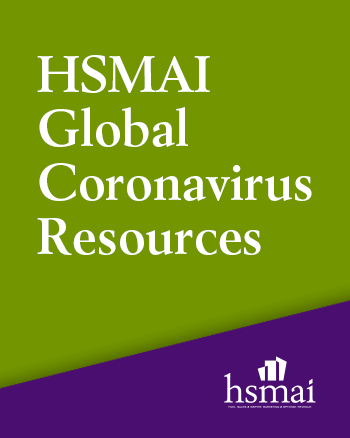By Christopher Durso, Vice President of Content Development, Hospitality Sales & Marketing Association International

Does this situation remind you of any previous crises you’ve experienced in your career in hospitality sales?
No. This is so much more severe than 9/11 or the financial crisis in 2008. After 9/11, I left in October and I was onstage within a month in Yorkshire, England, with Rudy Giuliani, giving speeches about how to get back on planes and travel and do everything. We saw a first-quarter decline after 9/11. The next quarter, maybe 25 percent. Same thing with the financial crisis.
This has been different. It started in greater China. All of our hotels, because we have a ton of clients there, immediately declined 90 percent. Then, two months later, it was the world. It’s not like anything we’ve seen.
How is coronavirus impacting your business?
There’s no business, because we’re trainers and we’re in hotels and we own a restaurant, which we’re keeping open for to-go orders right now. Our training business, where we have 10 people in our corporate office, we’ve gone to four-day workweeks. We’ve kept everybody working and my hope is that we will continue. We are on the phone and giving all kinds of free webinars, helping salespeople with how to adjust, how to reach out to clients with thoughtful messaging. But there’s no training, obviously. So, it’s impacted it by — there’s zero business.
How are you balancing your responsibilities to your clients with your responsibilities to your employees?
We’re available. We have 30 people out in the field, and we had a call this week because we have them all over the world. Our teams in Europe and Asia, we had two different calls with that group of people saying, “This is what we want you to do.” Then, we’re doing a call with our main corporate team here. I’ve been talking to everybody daily, but we’re going to do an official call and just say, “This is the second half of this year — we may be working on Christmas.” My whole mantra is: Postpone, don’t cancel. Every client has postponed, so the second half of the year is scheduled to the gills. Everybody needs to sleep and rest up, and we’re going to be ready to go.
Why postpone, don’t cancel?
Because canceling means you’ve got to refund money. We’re telling every hotel person: Postpone, don’t cancel. Every wedding: Postpone, don’t cancel. Nobody — not one hotel, not one venue, no one — wants anyone to just cancel. They want to postpone, because that way you’ll get it on the books. You’ll move it to another date.
What are some of the mistakes that you’re seeing hotel companies make in their response to coronavirus?
Laying off and furloughing salespeople. I get that I had to let servers go and operations people go, but why get rid of your salespeople? At the end of April, that might be a different story. Salespeople should be on the phone, they should be talking to clients, they should be figuring things out. The other thing is, don’t start getting into dropping price and discounting right now. Just move the date.
How do sales professionals balance looking for opportunities in this environment with being sensitive to the realities of a crisis situation?
First of all, they should be reaching out to their clients saying, “How can I help you?” They should be calling before the clients call them to postpone and move this business. Being able to say, “Could I help you set up any webinars? Because we have the technology, we know how to do this, we’ve been doing it for a long time” — things like that. Some of the smaller businesses that they’re working with may not know how to do the kind of teleconferencing which we do all the time in hotels. If you’re in a smaller area and your restaurant is still open, you can provide takeout.
It’s about reaching out and saying, “What can we do for you? Because we know you’re not coming to the hotel and we know we’re not having this event, but what can we do?” There’s no new business development as such, but new business development comes in different ways. New business development comes by being in touch, being relevant, being present, being out there. We’re in the hospitality industry, and that word hospitality really should say a lot right now.
As much as this crisis is unprecedented, are there lessons we can apply from previous crises?
There are some. First of all, positivity. You have to have hope. You have to be positive. You have to know that we have gone through, over the course of hundreds of years, things that are bad. Especially the younger generation that wasn’t around on 9/11 or even in 2008 — we’ve got to give hope and we’ve got to give direction and we’ve got to be able to talk to people and say, “Look, we will come through this.”
For additional information, insights, and tools, visit HSMAI’s Global Coronavirus Resources page.
